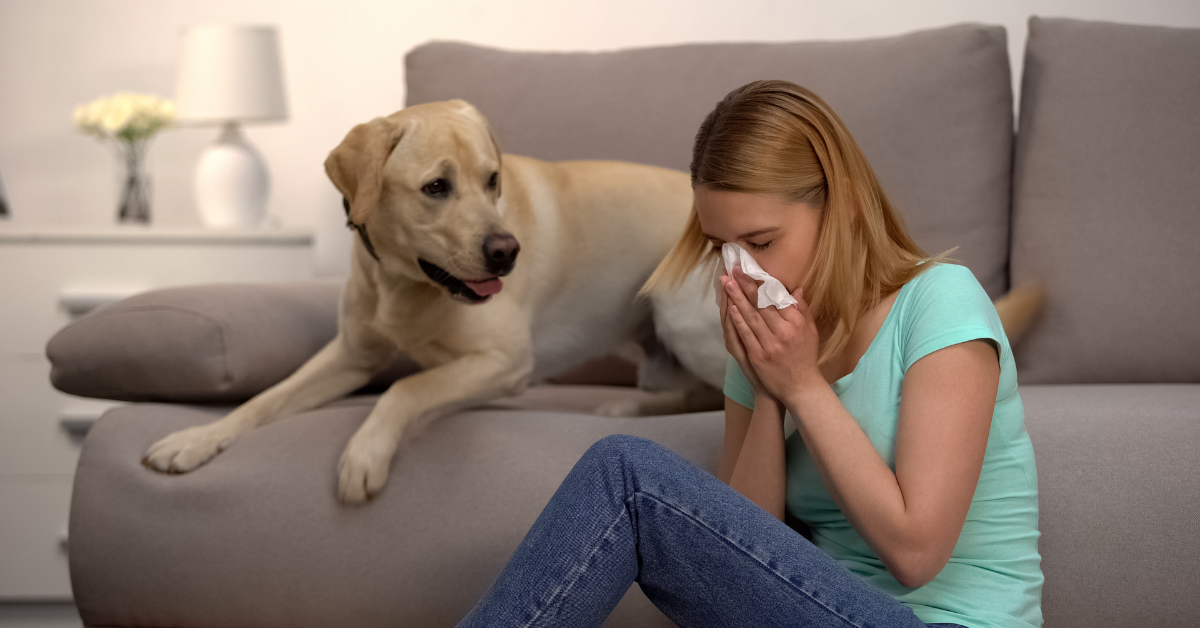
Your dog is sniffling and sneezing. Does he have a dog cold? Or is it something more serious?
According to the Mayo Clinic, a cold is a, usually harmless, “viral infection of your nose and throat.” Dogs are as susceptible to colds as humans are, though the viruses that cause colds in humans are not the same in dogs.
Another difference between colds in dogs and people? Because the signs your dog has a cold are also symptoms of several serious illnesses, ignoring your dog’s presumptive cold isn’t wise. It takes a visit to the vet to determine whether your dog’s sniffles or cough are a cold that can be waited out. Or something that needs to be dealt with right away.
So, how do you know if your dog has a cold? And what should you do if you think he does? Read on for everything you need to know about colds in dogs.
As in humans, a dog cold is a mild infection that can cause a variety of symptoms.
Signs your dog has a cold include:
These symptoms can indicate your dog has a cold, but they can also be signs of more serious illnesses like kennel cough, dog flu, bronchitis, and canine distemper. Some, like watery eyes and runny noses, can also be signs of seasonal or environmental allergies.
If your pup has any of the following symptoms in conjunction with any of the above, there’s a good chance it’s not a cold.
“I always recommend contacting your veterinarian when your dog starts showing cold-like symptoms,” says Dr. Katie Pagan of Heart + Paw. “There are many different reasons a dog can have coughing/sneezing. Viral infections, bacterial infections, fungal infections. So, it is best to have them checked instead of waiting.”
Many illnesses, like kennel cough or the dog flu, can be mild (ie, a dog cold) or serious. And they’re almost all highly contagious. If you have more than one dog in the house, you may need to get them all tested.
“Puppies/older dogs have a weaker immune system and things can progress very quickly so airing on the side of caution is best… Due to the contagious nature of many dog colds, it is imperative to keep your dog separate from others.”
With that said, if your dog only has watery eyes or a runny nose, it’s probably safe to wait a day or two to see if it resolves. If your dog develops other symptoms or doesn’t get better after a couple of days, make an appointment with your vet to have him checked out. Your vet will want to test to see which virus (or viruses) is causing the symptoms.
Mild infections generally go away on their own. But even then, something like a cough suppressant or decongestant prescribed by your vet may be able to help.
Other viruses, even in mild cases, may need treatment.
There’s no magic bullet that takes care of all colds, in humans or dogs. But there are vaccines for some of the viruses that cause cold-like symptoms in dogs including kennel cough, distemper, and canine influenza viruses. Talk to your vet about which vaccines your dog can benefit from.
If your vet has determined your dog has a cold, there are steps you can take to help your pup.
Though you’ll want to skip the noodles, chicken soup (ie low-sodium chicken broth) is a great “treatment” when your dog has a cold.
Staying hydrated is equally as important for dogs as it is for humans when they’re sick. But your dog might not want plain water. But some tasty broth (low-sodium beef broth is okay, too), is rarely refused.
If your dog seems congested, using a humidifier can help. (Humidifiers are also excellent for your dog’s fur and skin in the winter months.)
If you don’t have a humidifier, bring your dog into the bathroom while you shower for an at-home steam bath.
“I always recommend resting for at least two weeks when a dog is recovering from a cold,” Dr. Pagan says.
“The chances of your catching something from your dog is very low,” says Dr. Pagan. The same is true of the reverse. Your dog won’t catch your cold, or most any other illness.
(COVID-19 is a recent exception to the transfer of illnesses between humans and dogs. Your dog can catch COVID-19 from you but not vice versa.)
This is because the viruses that cause a cold in humans and dogs are species-specific. For instance, the rhinovirus is behind the vast majority of human colds.
But dogs aren’t susceptible to human rhinoviruses.
Similarly, most colds in dogs are caused by viruses such as canine parainfluenza and canine adenovirus type 2 (CAV-2). Humans can’t catch these viruses. (There is a human parainfluenza virus but they’re not interchangeable.)
Product Picks